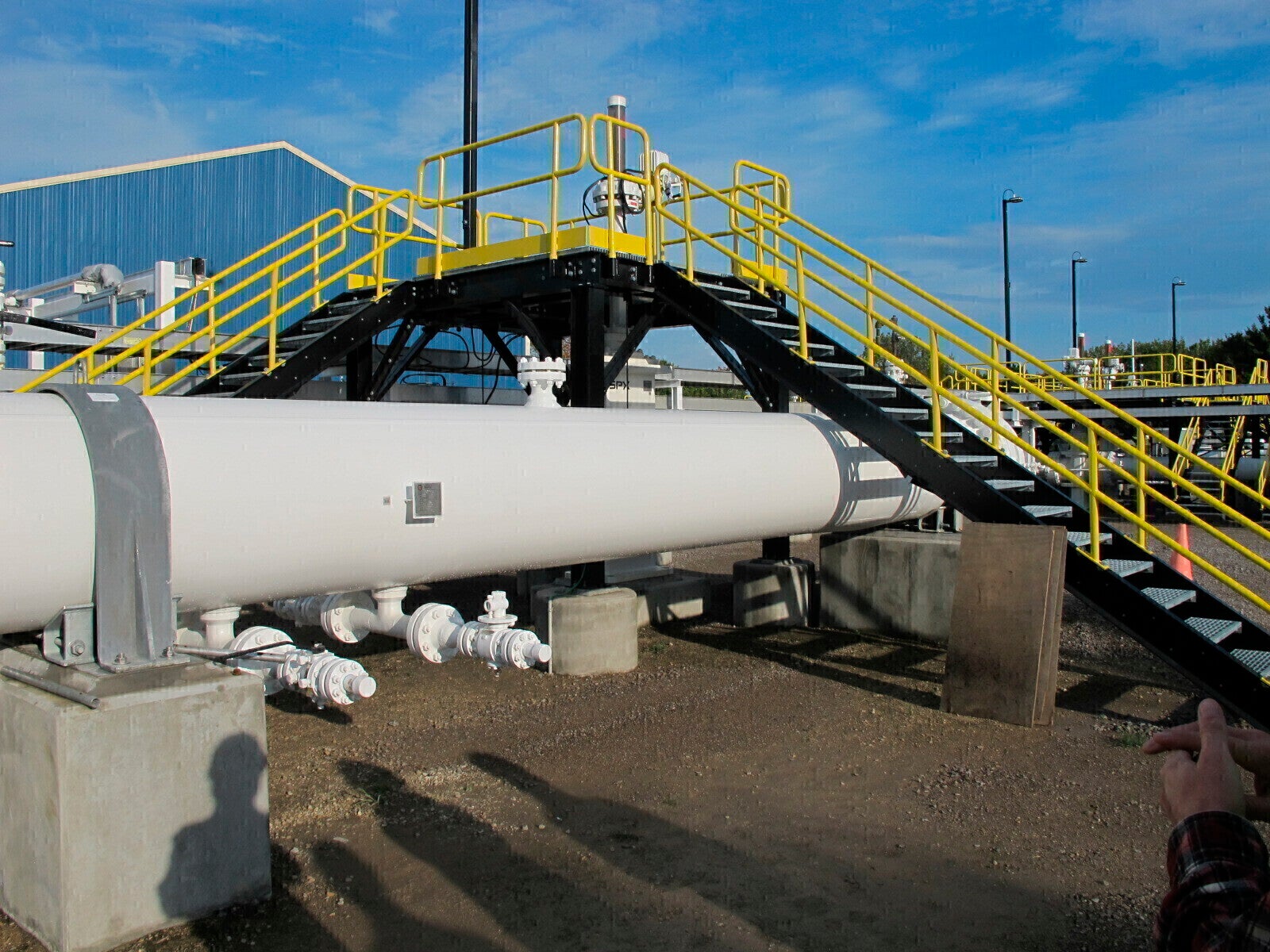Tribe and environmental groups urge Wisconsin officials to rule against relocating pipeline
A tribal leader and conservationists urged state officials to reject plans to relocate part of an aging northern Wisconsin pipeline, warning that the threat of a catastrophic spill would still exist along the new route

A tribal leader and conservationists urged state officials Thursday to reject plans to relocate part of an aging northern Wisconsin pipeline, warning that the threat of a catastrophic spill would still exist along the new route.
About 12 miles (19 kilometers) of Enbridge Line 5 pipeline runs across the Bad River Band of Lake Superior Chippewa's reservation. The pipeline transports up to 23 million gallons (about 87 million liters) of oil and natural gas daily from the city of Superior, Wisconsin, through Michigan to Sarnia, Ontario.
The tribe sued Enbridge in 2019 to force the company to remove the pipeline from the reservation, arguing the 71-year-old line is prone to a catastrophic spill and land easements allowing Enbridge to operate on the reservation expired in 2013.
Enbridge has proposed a 41-mile (66 kilometer) reroute around the reservation's southern border. The project requires permits from multiple government agencies, including the Wisconsin Department of Natural Resources and the U.S. Army Corps of Engineers.
Part of the permitting process calls for the Wisconsin Coastal Management Program, a division within Evers' Department of Administration, to rule on whether the reroute complies with state coastal protection policies.
Bad River Chair Robert Blanchard told division officials during a public hearing on the question that the reroute would run adjacent to the reservation and any spill could still affect reservation waters for years to come.
Other opponents, including representatives from the National Wildlife Federation and the Sierra Club, warned that the new route's construction could harm the environment by exacerbating erosion and runoff. The new route would leave scores of waterways vulnerable in a spill, they added.
They also argued that Enbridge has a poor safety record, pointing to a rupture in Enbridge's Line 6B in southern Michigan in 2010 that released 800,000 gallons (about 3 million liters) of oil into the Kalamazoo River system.
Supporters countered that the reroute could create hundreds of jobs for state construction workers and engineers. The pipeline delivers energy across the region and there's no feasible alternatives to the reroute proposal, Emily Pritzkow, executive director of the Wisconsin Building Trades Council, said during the hearing.
Enbridge didn’t immediately return a voicemail seeking comment on the hearing.
It's unclear when the coastal management program might issue a ruling on compatibility.
The company has only about two years to complete the reroute. U.S. District Judge William Conley last summer ordered Enbridge to shut down the portion of pipeline crossing the reservation within three years and pay the tribe more than $5 million for trespassing. An Enbridge appeal is pending in a federal appellate court in Chicago.
Michigan’s Democratic attorney general, Dana Nessel, filed a lawsuit in 2019 seeking to shut down twin portions of Line 5 that run beneath the Straits of Mackinac, the narrow waterways that connect Lake Michigan and Lake Huron. Nessel argued that anchor strikes could rupture the line, resulting in a devastating spill. That lawsuit is still pending in a federal appellate court.
Michigan regulators in December approved the company’s $500 million plan to encase the portion of the pipeline beneath the straits in a tunnel to mitigate risk. The plan is awaiting approval from the U.S. Army Corps of Engineers.
Bookmark popover
Removed from bookmarks